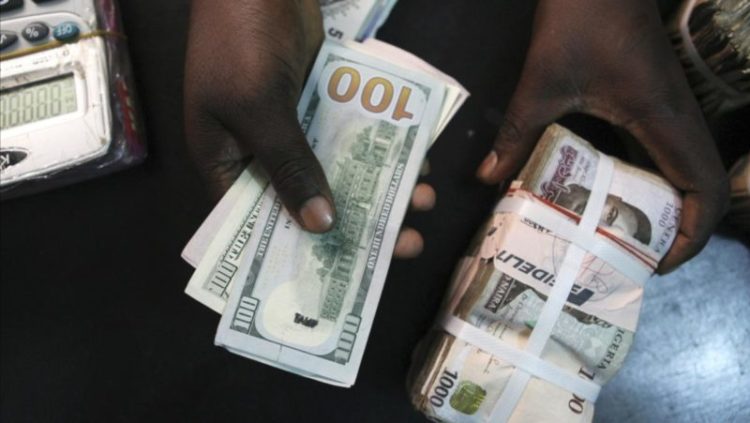The recent upward adjustment of the exchange rate by the Central Bank of Nigeria from N361 to N379 to a dollar would bring some pains to most Nigerians in the short term given the country’s import dependent nature and over reliance on oil revenue.
The President, Association of Capital Market Academics of Nigeria, Prof Uche Uwaleke said this on Monday while reacting to the action of the apex bank.
Advertisement
He said in the short term, the implication of this devaluation would likely hurt the economy as the cost of importation of critical raw materials for Small and Medium Enterprises including import of petroleum products which hitherto were subsidized at the official window would rise.
He said the implication of this action is that there would be more inflationary pressure on an economy already challenged by COVID-19 and insecurity which have combined to disrupt output especially in the agriculture sector.
In a bid to check inflation pressure, Uwaleke who is a former Commissioner of Finance in Imo State noted that the CBN would likely raise Monetary Policy Rates leading to further increase in SMEs cost of funds and of production.
The Monetary Policy Committee of the Central Bank of Nigeria had last month retained the Monetary Policy Rate at 12.5 per cent with an Asymmetric Corridor of +200/-500 basis points around the MPR;
Advertisement
The University Don said the implication of high lending rate would lead to more job losses, thereby worsening the current unemployment situation.
Going by government’s official statistics, about 20.9 million Nigerians are without jobs.
Another negative side effect of the devaluation, he noted, is that it will shrink asset values in dollar terms.
“This will affect the global ranking of of Banking and capital markets institutions.
“Banks that have borrowed in dollars from foreign institutions will be in more trouble. Our public debt stock will also rise in naira terms,” he added.
Advertisement
He said the exchange rate adjustment was done by the CBN largely in response to the conditions for drawing down on the International Monetary Fund’s
$3.4bn Rapid Credit Facility.
He argued that while the move is also consistent with the Economic Sustainability Plan of the government which has made provision for unification of rates across all the forex windows, it is at variance with the Medium Term Expenditure Framework and by implication the 2020 budget which was based on an official Exchange rate of N360 to the dollar.
“Even the 2021-2023 MTEF is equally predicated on N360 per $1. So, except these are quickly revised in the light of this unification effort, the country’s annual budgets in the medium term are literally dead on arrival,” he added.
However, he stated that these economic challenges may disappear in the long run resulting in a more stable macroeconomic environment
He said, “As envisaged by the IMF, the single Exchange rate involving a devaluation has the potential of fixing the country’s Balance of Payment difficulties through reduced imports.
“Also, the unification of rates is expected to translate into more naira revenue for the three tiers of government following conversion of crude oil sales proceeds at a higher Exchange rate than the previous N360 to the dollar.
Advertisement
“This should mean improved funding of government budgets if better managed.
“Furthermore, the measure will reduce round tripping and other sharp practices in the forex market made possible by multiple exchange rates.
“It will also make the forex market more transparent, facilitate planning for businesses for whom multiple rates create confusion and uncertainty.
“Market transparency will attract foreign investors and so in the long run, the parallel market rate will not be too diverged from the market-determined rate.”
He said the move will help increase the presence of foreign Investors in the capital market as well as increase forex inflows especially from Diaspora remittances.
This, he stated, will assist in improving liquidity in the forex market there resulting to market stability.
When this happens, Uwaleke said the economy will begin to witness a reduction in inflation rate since the high exchange rate in the parallel market contributes to inflation.
He said increased business activity will alsonlead to more job opportunities.
“But all these sunny sides will come about with time, may be a few years from now and will be enhanced by government’s efforts at tackling insecurity and intensifying infrastructure provision.
“In the coming months, Nigerians should be prepared to ride through difficult times,” he concluded.



